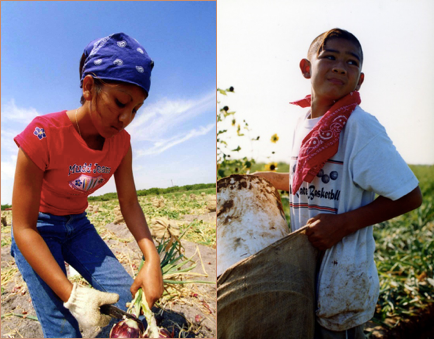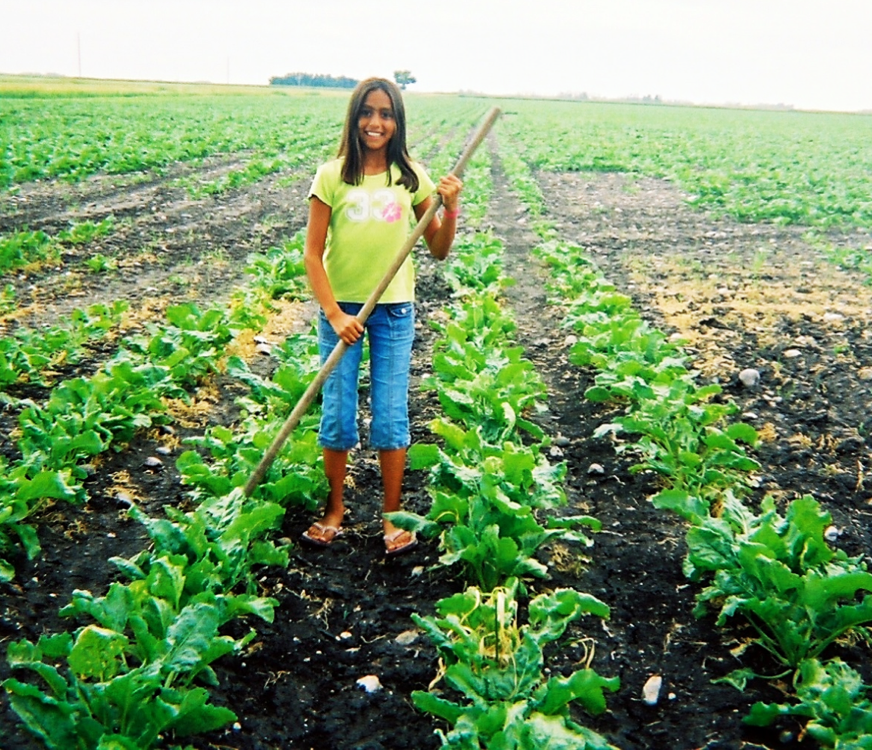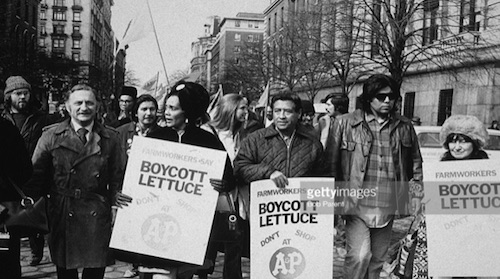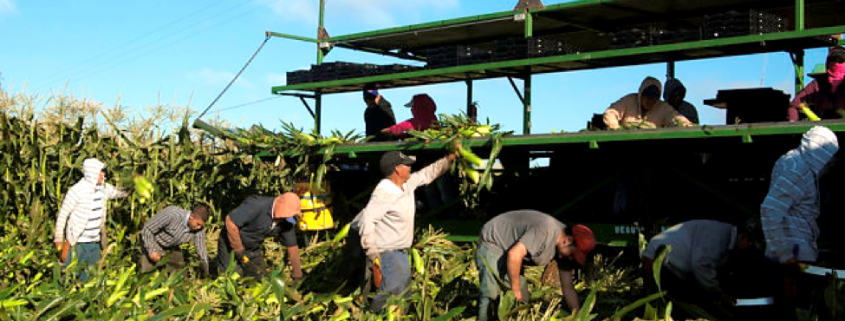Closing the Loopholes, Opening Opportunities
By Amber James, Program Analyst for Workforce Development

“A nation can neither achieve nor sustain prosperity on the backs of its children. In the global economy, the exploitation of children must not be tolerated under any circumstances or for any reason. When children are exploited for the economic gains of others, everybody loses–the children lose, their families lose, their country loses, the world loses. When even one child is exploited, every one of us is diminished.” – Former U.S. Senator Tom Harkin
In recognition of National Farmworker Awareness Week, the Association of Farmworker Opportunity Programs (AFOP) would like to raise awareness about the scourge of child labor in U.S. agriculture.
Around the world, agriculture remains the most important sector where 98 million, or 59%, of child laborers (ages 5-17) work, as well as the most dangerous occupation with a fatality rate of 80% for children under 15. In the United States, there are approximately 2.5 million employed farmworkers, and about half a million are under 18 years of age. The majority of child farm workers are unpaid members of migrant and seasonal farmworker (MSFW) families accompanying their parents in the fields to increase earnings.
MSFW and their children suffer greater rates of fatality, mortality and morbidity than most of the American populace due to a combination of poverty, hazardous working conditions, limited health care access, and slack labor regulations. The National Institute for Occupational Safety and Health (NIOSH) reports that an estimated 33,000 children have farm-related injuries each year in the U.S., and more than 100 of these children die as a result of their injuries. The leading causes of fatal injuries to youth were the result of children being directly involved in farm work.
The Human Rights Watch, Pesticide Action Network (PAN-NA), farmworker advocates and public health experts have also documented farmworkers’ elevated risks of chronic diseases linked to chemical poisonings, including Green Tobacco Sickness, cancer, birth defects, and learning disabilities. Of course, MSFW youth face far greater health risks than their adult counterparts from pesticide and nicotine exposure, unsanitary facilities, musculoskeletal injuries, long work hours, extreme weather exposure, hazardous equipment and machinery, and even sexual and verbal abuse.
Moreover, MSFW youth are continually put at a disadvantage, and are seldom able to access educational and extracurricular opportunities more easily obtained by other children. These children often become entrapped in a cycle of poverty.

Although incredible headway has been made over the last few decades in publicizing the plight of America’s ‘hidden workers’ and advocating for greater corporate social responsibility and fairer labor standards, our regulatory system has still failed to protect MSFW youth. There needs to be greater commitment to closing loopholes in U.S. labor law, and facilitating the extension of child labor protections to U.S. agriculture.
During this year’s National Farmworker Awareness Week, we again draw the public’s attention to an antiquated loophole in our own food system –the agricultural exemption in the Fair Labor Standards Act (FLSA) of 1938. The FSLA loophole still permits children as young as 12 to work unlimited hours on a farm outside of school, and children at least 16 years of age to perform hazardous work restricted to adults in other industries. Regardless of the age, the work jeopardizes the physical, mental, and social development of child farm workers, and continually exposes them to pitiable conditions that would be deemed undignified and unlawful in any other U.S. industry or country (as most countries have adopted ILO-based legislation that prohibits or places severe restrictions on child labor).
AFOP reiterates our commitment to eliminating the legal discrimination that permits the present situation by closing the FSLA loophole that allows children to be employed in agriculture at the expense of already being disadvantaged. We envision a future in which MSFW youth have enhanced educational opportunities, adequate housing and bathrooms, potable drinking water, improved health care access, and are able to fully participate in the “American Dream.”

On a positive note, AFOP would like to applaud the recent success of the Child Labor Coalition (CLC), of which we are a long-standing member, in helping close a draconian loophole in the U.S. Tariff Act of 1930, which allowed the import of goods and commodities produced by forced adult and child labor into the country when domestic production trailed demand. According to the Bureau of International Labor Affairs (ILAB), approximately 21 million people around the world are victims of forced labor, and around 168 million are child laborers – 85 million engaged in hazardous work.
In February, President Obama signed the “Trade Facilitation and Trade Enforcement Act” (Public Law 114-125) into law, pressuring both U.S.-based companies and global supply networks to take greater responsibility in monitoring their supply chains and ensuring that labor practices do not violate the principles of decent work or the rights of a child (which the United States has yet to ratify). The law will target 136 goods from 74 countries based on recommendations from the U.S. Department of Labor.
The closure of the loophole, after 86 years, indicates the U.S. Government’s reconfirmed interest in curtailing American involvement in questionable labor practices, and should have significant implications for effectuating greater compliance with ethical standards. Unfortunately, the legislation fails to acknowledge the existence of unfair and exploitative labor practices on American soil, and may do little to protect the hidden workers and children who harvest the fruits and vegetables that end up on our plates every day.
There has been an increased urgency in the United States and international community to combat the worst forms of agricultural labor around the world, but where is acknowledgement of and uproar over the shameful working conditions thousands of MSFW endure in our own country? How much longer until they also have federal social protections?




 Many farmworkers cherish the role they play in bringing fresh food to tables in homes across the country. It’s not surprising that many of the farmworkers who qualify for
Many farmworkers cherish the role they play in bringing fresh food to tables in homes across the country. It’s not surprising that many of the farmworkers who qualify for 